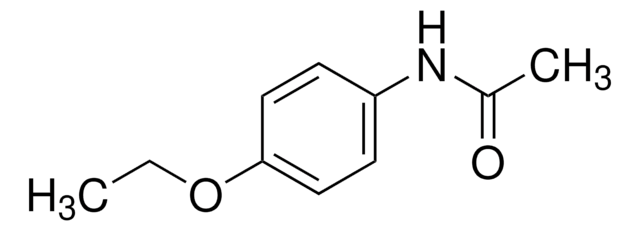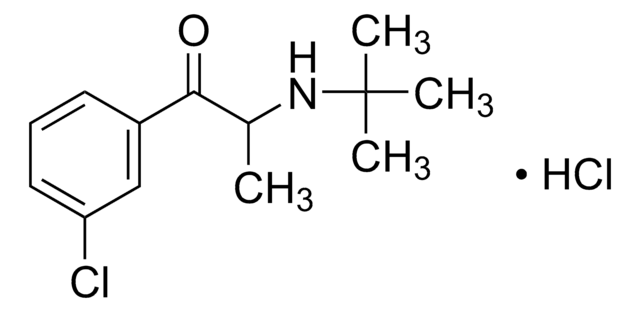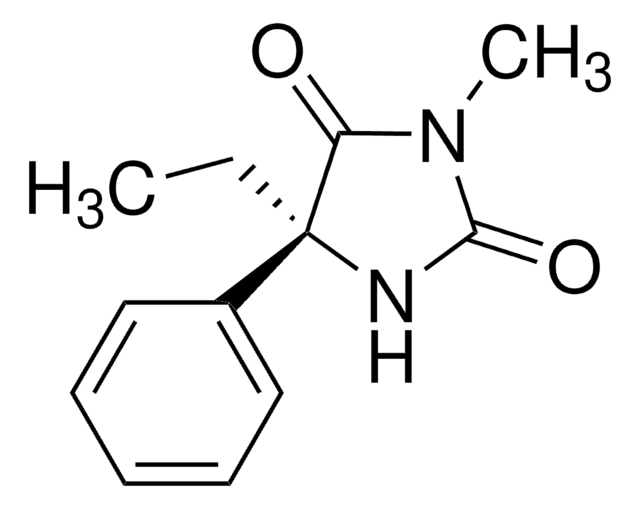77440
Phenacetin
≥98.0% (HPLC)
Sinónimos:
1-Acetyl-p-phenetidin, 4′-Ethoxyacetanilide, N-(4-Ethoxyphenyl)acetamide, p-Acetophenetidide, Acetophenetidin
About This Item
Productos recomendados
Nivel de calidad
Análisis
≥98.0% (HPLC)
formulario
crystals
mp
133-136 °C (lit.)
grupo funcional
amide
cadena SMILES
CCOc1ccc(NC(C)=O)cc1
InChI
1S/C10H13NO2/c1-3-13-10-6-4-9(5-7-10)11-8(2)12/h4-7H,3H2,1-2H3,(H,11,12)
Clave InChI
CPJSUEIXXCENMM-UHFFFAOYSA-N
¿Está buscando productos similares? Visita Guía de comparación de productos
Aplicación
Acciones bioquímicas o fisiológicas
Palabra de señalización
Danger
Frases de peligro
Consejos de prudencia
Clasificaciones de peligro
Acute Tox. 4 Oral - Carc. 1B
Código de clase de almacenamiento
6.1C - Combustible acute toxic Cat.3 / toxic compounds or compounds which causing chronic effects
Clase de riesgo para el agua (WGK)
WGK 3
Punto de inflamabilidad (°F)
Not applicable
Punto de inflamabilidad (°C)
Not applicable
Equipo de protección personal
Eyeshields, Gloves, type P3 (EN 143) respirator cartridges
Elija entre una de las versiones más recientes:
¿Ya tiene este producto?
Encuentre la documentación para los productos que ha comprado recientemente en la Biblioteca de documentos.
Los clientes también vieron
Nuestro equipo de científicos tiene experiencia en todas las áreas de investigación: Ciencias de la vida, Ciencia de los materiales, Síntesis química, Cromatografía, Analítica y muchas otras.
Póngase en contacto con el Servicio técnico









